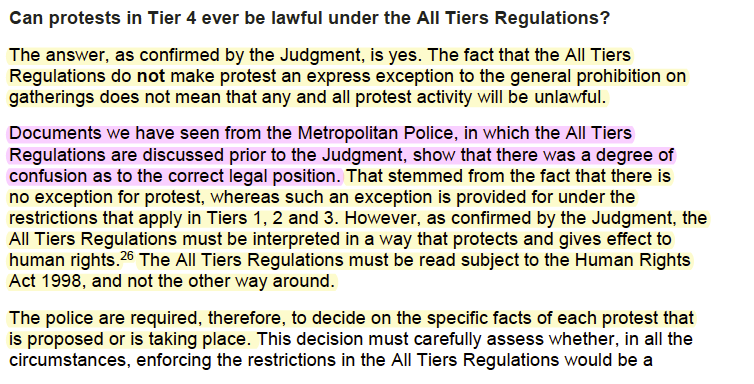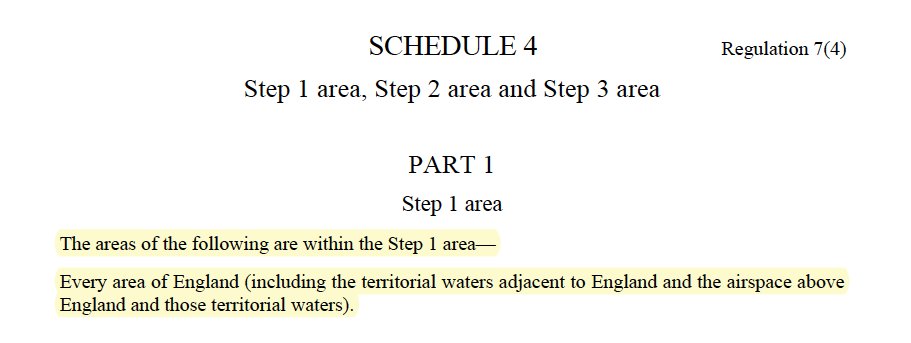
The vigil report is worth reading in full because the picture is not as clear as this headline.
A big question which has hung over the police response has been if they got the law right or wrong.
This review concluded they got it *wrong*.
(thread)
justiceinspectorates.gov.uk/hmicfrs/wp-con…
A big question which has hung over the police response has been if they got the law right or wrong.
This review concluded they got it *wrong*.
(thread)
justiceinspectorates.gov.uk/hmicfrs/wp-con…
https://twitter.com/BBCNews/status/1376844713374932993

It is obvious now (if it wasn't before) that the Metropolitan Police were confused about the law even after the Holgate judgment on Friday afternoon. 

What has been the impact of getting the law on the right to protest wrong during this lockdown?
As I and other lawyers acting for @ReclaimTS have said, the Met Police did not fully understand their legal duties to facilitate safe, peaceful protest.
doughtystreet.co.uk/sites/default/…
As I and other lawyers acting for @ReclaimTS have said, the Met Police did not fully understand their legal duties to facilitate safe, peaceful protest.
doughtystreet.co.uk/sites/default/…
... What the report then goes on to say, essentially, is that it was right the police acted consistently towards @ReclaimTS as this is how they had been approaching other protests throughout the lockdown.
But if the approach was unlawful (because they didn't understand...
But if the approach was unlawful (because they didn't understand...
... some protest could be lawful) then the implications across this lockdown, and for the past year, are very troubling.
And the report rightly places responsibility at the govt's door - the laws have been too vague and open to interpretation.
And the report rightly places responsibility at the govt's door - the laws have been too vague and open to interpretation.

And the Home Secretary has played an important role in all of this - one which needs to be further examined.
https://twitter.com/AdamWagner1/status/1372896067101003776?s=20
This report concluded it was right for police to treat the vigil consistently with other protests.
But if that approach was wrong in law (which should have been clear at least after Friday's Holgate judgment), consistently is a disadvantage (as the report itself says earlier)

But if that approach was wrong in law (which should have been clear at least after Friday's Holgate judgment), consistently is a disadvantage (as the report itself says earlier)


Ultimately, the report concludes that the vigil could not have been organised safely from a COVID perspective (even though in other areas such as Nottingham where a different approach was taken, it was). As they say, it is difficult to speculate one way or the other.
But there still remains a hugely important legal question - was the Met policy lawful, and if it wasn't, what was the impact on many protests which happened (see annex) but perhaps even more importantly, the many more that didn't because people were told protest was unlawful. 

There is a frustrating dissonance - between 'they didn't understand their legal duties towards protest' and 'well, they just about got to the right outcome'.
You might think (I do) that taking fundamentally the wrong approach leads to fundamentally the wrong decisions
You might think (I do) that taking fundamentally the wrong approach leads to fundamentally the wrong decisions
Also, as an aside, it probably would have been sensible to highlight Lord Sumption is not exactly the impartial legal expert on lockdown laws - he has been a vocal campaigner against them 

• • •
Missing some Tweet in this thread? You can try to
force a refresh







